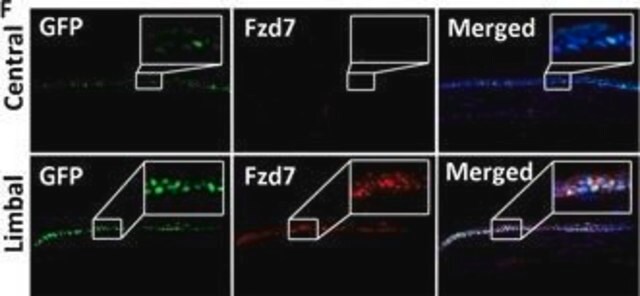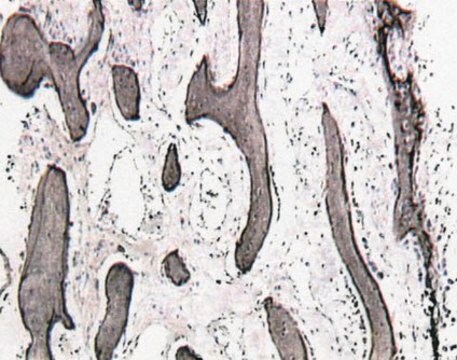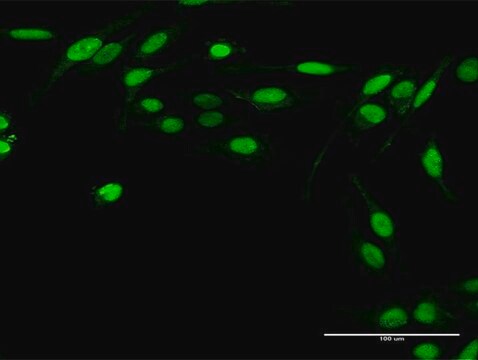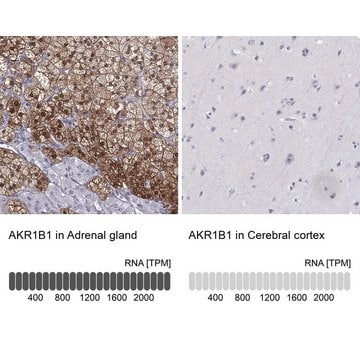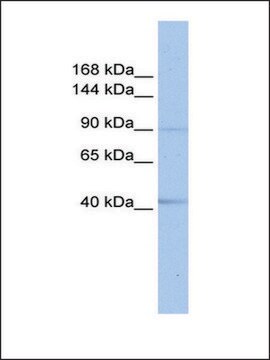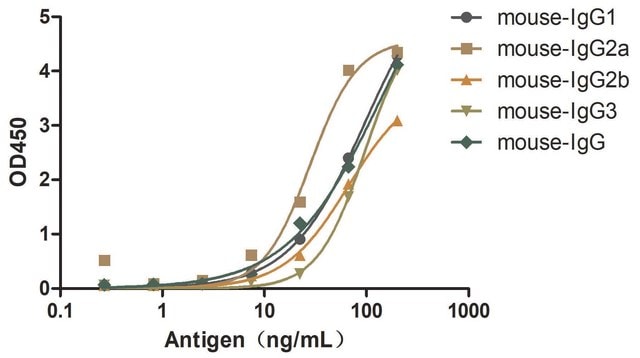AV48180
Anti-AKR1B1 antibody produced in rabbit
IgG fraction of antiserum
Szinonimák:
Anti-ADR, Anti-ALDR1, Anti-ALR2, Anti-AR, Anti-Aldo-keto reductase family 1, member B1 (aldose reductase), Anti-MGC1804
About This Item
Javasolt termékek
biológiai forrás
rabbit
Minőségi szint
konjugátum
unconjugated
antitest forma
IgG fraction of antiserum
antitest terméktípus
primary antibodies
klón
polyclonal
Forma
buffered aqueous solution
molekulatömeg
36 kDa
faj reaktivitás
pig, mouse, rat, dog, human
koncentráció
0.5 mg - 1 mg/mL
technika/technikák
western blot: suitable
NCBI elérési szám
UniProt elérési szám
kiszállítva
wet ice
tárolási hőmérséklet
−20°C
célzott transzláció utáni módosítás
unmodified
Géninformáció
human ... AKR1B1(231)
Általános leírás
Rabbit Anti-AKR1B1 antibody recognizes chicken, canine, rabbit, human, mouse, rat, bovine, pig, and zebrafish AKR1B1.
Immunogén
Alkalmazás
Biokémiai/fiziológiai hatások
Szekvencia
Fizikai forma
Jogi nyilatkozat
Nem találja a megfelelő terméket?
Próbálja ki a Termékválasztó eszköz. eszközt
Tárolási osztály kódja
10 - Combustible liquids
WGK
WGK 3
Lobbanási pont (F)
Not applicable
Lobbanási pont (C)
Not applicable
Válasszon a legfrissebb verziók közül:
Analitikai tanúsítványok (COA)
Nem találja a megfelelő verziót?
Ha egy adott verzióra van szüksége, a tétel- vagy cikkszám alapján rákereshet egy adott tanúsítványra.
Már rendelkezik ezzel a termékkel?
Az Ön által nemrégiben megvásárolt termékekre vonatkozó dokumentumokat a Dokumentumtárban találja.
Tudóscsoportunk valamennyi kutatási területen rendelkezik tapasztalattal, beleértve az élettudományt, az anyagtudományt, a kémiai szintézist, a kromatográfiát, az analitikát és még sok más területet.
Lépjen kapcsolatba a szaktanácsadással